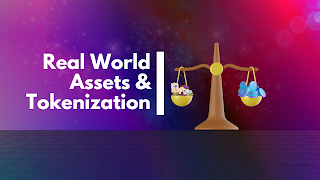Investment & Business Report: Whitecap Resources Inc. (TSX: WCP)
📈 Stock Snapshot (as of May 5, 2025)
-
Current Share Price: C$7.82
-
52-Week Range: C$6.87 – C$11.31
-
Market Capitalization: ~C$4.7 billion
-
Dividend Yield: 9.33%
-
Annual Dividend: C$0.73 per share (C$0.0608 monthly)
-
Next Dividend Payment: May 15, 2025 (ex-dividend date: April 30, 2025)
-
Payout Ratio: ~47% of earnings Simply Wall St
🛢️ Company Overview
Whitecap Resources Inc. is a Calgary-based energy producer focused on light oil and natural gas liquids across Western Canada. The company emphasizes sustainable production growth, free cash flow generation, and consistent shareholder returns through dividends and share repurchases.
🏗️ Operations & Resource Base
-
Total Proved Plus Probable (2P) Reserves: ~1.2 billion barrels of oil equivalent (boe)
-
Drilling Inventory: 6,270 locations (~30 years of development at current pace)
-
Core Areas:
-
West Division:
-
Smoky Region: Montney formation at Musreau
-
Kaybob Region: Duvernay formation
-
Peace River Arch (PRA): Conventional oil and gas operations
-
-
East Division:
-
Central Alberta: Cardium and Glauconite formations
-
West and East Saskatchewan: Viking light oil play and Frobisher formation
-
Weyburn: CO₂-enhanced oil recovery project
-
-
In 2024, Whitecap drilled 246 wells (225.2 net), including 38 unconventional wells in the Montney and Duvernay formations.
💰 Financial Highlights (2024)
-
Revenue: C$3.67 billion
-
Net Income: C$812.3 million
-
Funds Flow: C$1.63 billion
-
Free Funds Flow: C$501.1 million
-
Capital Expenditures: C$1.13 billion
-
Dividends Declared: C$433.3 million (C$0.73 per share)
-
Net Debt: C$933.1 million
-
Average Daily Production: 174,255 boe/d (65% liquids)
🏦 Q1 2025 Update
-
Funds Flow: C$446 million
-
Free Funds Flow: C$48 million
-
Net Debt: C$987 million
-
Net Debt to Annualized Funds Flow Ratio: 0.6x
The company maintains significant liquidity through its credit facilities, ensuring financial flexibility.
🔮 Outlook (2025–2026)
-
Average Production: 176,000–180,000 boe/d (63% liquids)
-
Capital Budget: C$1.1–1.2 billion
-
Funds Flow: ~C$1.7 billion
-
Free Funds Flow: ~C$550 million
-
Production per Share Growth: 4%–6%
Whitecap continues to prioritize shareholder returns through dividends and share repurchases.
🔁 Strategic Merger with Veren Inc.
In March 2025, Whitecap announced a merger with Veren Inc. in a C$15 billion all-share transaction, including debt. The combined entity is expected to:
-
Production: 370,000 boe/d (63% liquids)
-
Land Position: 1.5 million acres, becoming the largest landholder in Alberta's Montney region
-
Annual Synergies: Over C$200 million
-
Free Cash Flow Increase: 26% boost
The merger is anticipated to close by May 30, 2025, enhancing Whitecap's scale and operational efficiency.
🧠 Analyst Perspectives
Analysts maintain a positive outlook on Whitecap, with a 12-month price target averaging C$13.06, ranging between C$11.00 and C$14.50. The consensus rating is "Buy," reflecting confidence in the company's growth trajectory and financial discipline. MarketBeat
✅ Investment Considerations
-
Strengths:
-
Robust dividend yield (9.33%)
-
Strong free cash flow generation
-
Significant drilling inventory
-
Strategic merger enhancing scale
-
-
Risks:
-
Commodity price volatility
-
Integration risks post-merger
-
Regulatory and environmental considerations
-
Whitecap Resources Inc. demonstrates robust operational performance, a substantial resource base, and prudent financial management. The upcoming merger with Veren positions the company for enhanced growth, increased free cash flow, and improved shareholder returns. Investors can anticipate continued value creation driven by strategic development and disciplined capital allocation.
Note: All financial figures are in Canadian dollars (C$).
Discl: Long Whitecap on TSX
















